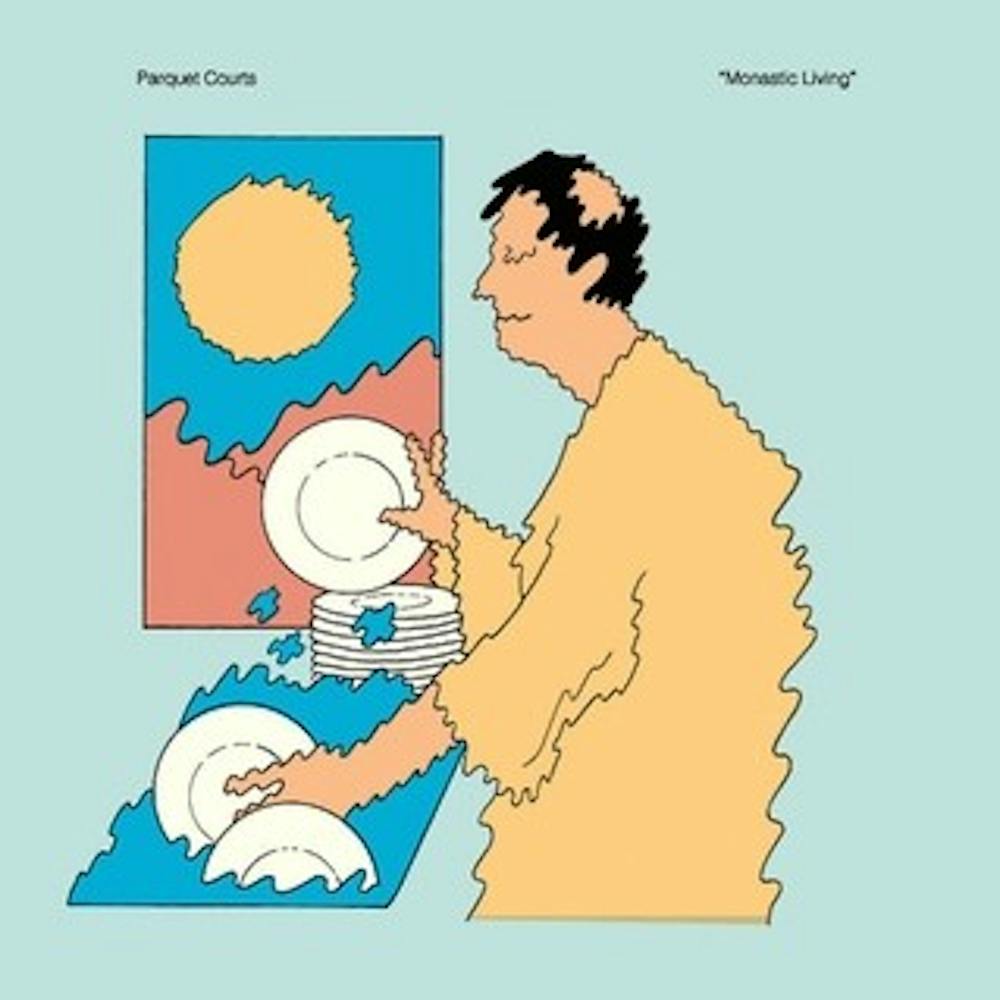If there is thought-provoking state, it is North Dakota — the consistent geographical muse of Brooklyn garage-rock band Parquet Courts.
Since the band’s inception, they have voiced the questions that keep us all awake at night, and since their debut release “American Specialties,” they have used this western landscape’s never-ending plains and bleak skies as their palette to ask these questions. They make the audience to wonder when life is really going to start, and where the next piece of divine inspiration or purpose may be.
In a way, this is what has made Parquet Courts so special: a restless voice that can be found in every one of us. With the band’s latest release, “Monastic Living,” however, this daydreaming has been replaced with a sort of indifference.
Drastic changes in the band’s ethos can be detected from the first track on the album. In the past, Parquet Courts has made riffs so catchy any listener would swear they have heard them before. However, on “Monastic Living,” these simple and memorable arrangements laid out on the whiniest of Wal-Mart guitars are nowhere to be found.
Musically, the first track “No, No, No!” shows use of syncopation and subtle post-punk elements that seem unique at first, but still detracts from the band’s original sound that made them so alluring in the first place. The sound is now characterized by fuzzy layering and long instrumental sections.
On this first track, vocalist Andrew Savage mulls over whether “silence is purity of spirit.” The audience gets a hint of his resounding desire for growth that accentuated past albums, but here that sentiment is met with less excitement for the future and more apathy. Savage is no longer waiting for a path to follow, but rather is resigned to “retreat into solitude.”
Ultimately, many will denigrate this more jaded attitude Parquet Courts has taken on. Their more droney, drawn-out sound on “Monastic Living” flies in the face of the two-minute long earworms from “Light Up Gold.” The band has grown in their attitude, but at the cost of the voice that initially captured its fans.





